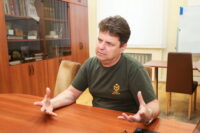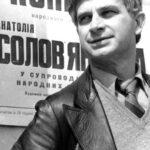
(book review)
Birds are fake, Australia doesn’t exist, and the number 39 is cursed. Sounds like ridiculous fiction that no one would ever believe, right? In fact, these are conspiracy theories that thousands of people around the world are convinced are true. This book written by Maksym Yakovlev is a thought-provoking work that delves into the world of conspiracy theories and offers readers a critical perspective on the subject. On the pages of it, international political scientist Maksim Yakovlev explores a variety of conspiracy theories and explains how conspiracy theorists see the world and what tools they use to put together their conspiratorial mosaics.
One of the strengths of this book is its accessibility. Yakovlev writes in a clear and engaging style that makes the subject matter easy to understand for readers of all backgrounds. The book is also filled with exciting examples and anecdotes that help illustrate the points that Yakovlev is making. For example, in discussing the dangers of conspiracy theories, Yakovlev writes:
“Conspiracy theories can be dangerous because they often promote distrust of institutions and authority, and can lead to a breakdown in social cohesion. When people start to believe that those in power are actively working against them, it can create a sense of paranoia and fear that is hard to shake.”
Another strength of the book is its focus on critical thinking. Yakovlev encourages readers to question their own beliefs and to consider alternative perspectives. He also emphasizes the importance of seeking out credible sources of information and avoiding sources that promote unfounded conspiracy theories. This is particularly relevant in today’s world, where misinformation and fake news are often spread on social media and other platforms.
One potential weakness of the book is that it can be repetitive at times. Yakovlev covers similar ground in several chapters, and some readers may find themselves skimming over sections that feel redundant. Additionally, while Yakovlev is a skilled writer, the book can feel dry at times, particularly in its more academic sections.
Overall, I would highly recommend ‘How (not) to become a conspiracy theorist’ by Maksym Yakovlev to anyone interested in the subject of conspiracy theories or critical thinking. The book is an engaging and informative read that offers readers a fresh perspective on a subject that is often misunderstood. I would rate this book 4 out of 5 stars.
























































Залишити відповідь